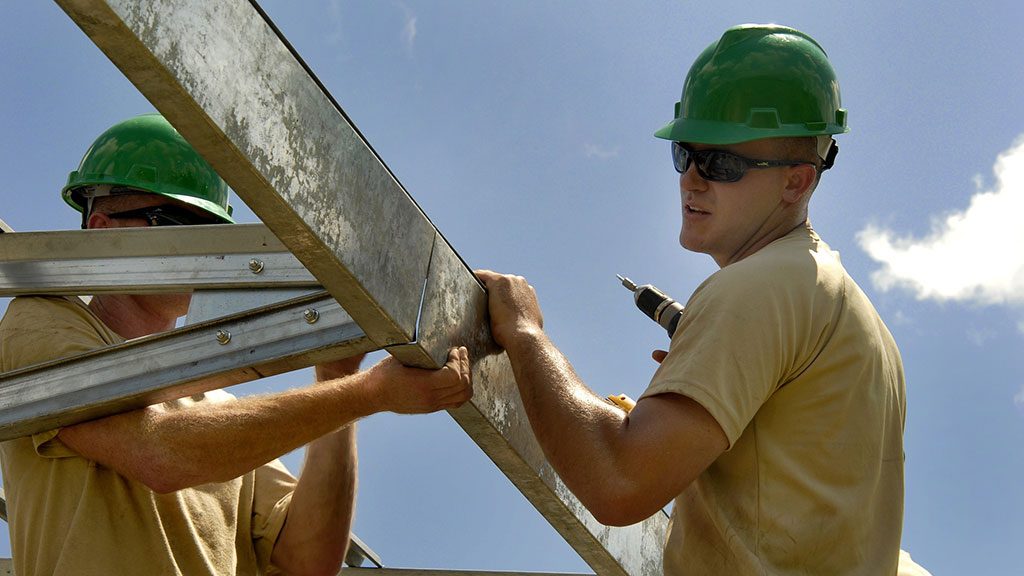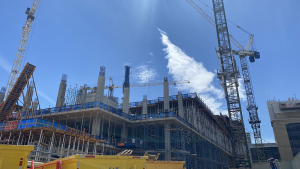British Columbia’s 2020 budget does not deliver solutions for small business tax needs or construction’s workforce future, says the BC Construction Association (BCCA).
“Predominately focused on health and human services, the 2020 Budget brings no relief for small businesses facing increased tax and administrative burdens, such as the new Employer’s Health Tax, an increase in carbon and corporate taxes and a rising minimum wage,” said BCCA president Chris Atchison, describing it as a document that “is essentially a continuation” of the NDP budget introduced three years ago.
“Speaking solely on construction-related matters, while it’s positive to see the $7 billion spend in social housing remains on the table, we need to ensure that BC Housing’s procurement methods are fair, open and transparent and we look forward to working with them to achieve that.”
On Feb. 18, B.C. Minister of Finance Carol James unveiled the provincial budget.
“From new roads, hospitals, housing, schools and child care centres to better, more affordable services in every community, we’re seeing fundamental changes that are making life better for British Columbians,” said James.
Budget 2020 “makes new commitments to bring capital spending over three years to $22.9 billion – the highest level in B.C.’s history. And work underway on new and upgraded hospitals and health facilities, highway and transit projects, schools and new housing throughout B.C. is stimulating more than 100,000 direct and indirect jobs during construction.”
Atchison says that while BCCA is pleased that no new CBA/PLA (Community Benefits Agreement/Project Labour Agreement) projects were announced, “it’s troubling to know that several projects are moving forward under the CBA agreement, which is seeing tens of millions in taxpayer dollars going to support preferred unions rather than train the apprentices we need.”
Atchison says BCCA has not seen a budgetary commitment from the government that addresses B.C.’s skilled workforce shortage.
“If government does not do more to address the problem, it will continue for the long term,” he said.
According to the BuildForce Canada 2020-2029 Construction and Maintenance Looking Forward report, B.C.’s predicted shortage of skilled workers in ICI construction has risen from 7,900 to 8,400 workers by 2029.
“That 6.5 percent jump marks the first time since 2013 there has been an increase in the projected skilled worker shortage in B.C. over the previous year,” said Atchison. “And despite being in a building boom, registrations for new apprentices has decreased by six percent from a peak in 2013, with apprentices too often unable to get seats in the college nearest them due to cost or availability.”
Like the BCCA, Business Council of BC (BCBC) is pleased the government is devoting additional funds to provincial infrastructure.
BCBC says the three-year capital spending total ($22.9 billion) is $2.8 billion higher than the comparable figure in the 2019 Budget, with most of the additional money going to transportation, health education.
Capital investment in transportation totals $7.4 billion over the next three years, with the Pattullo Bridge replacement and the Broadway SkyTrain extension among the biggest projects.
A total of $6.4 billion (over three years) for health care will go to the construction and upgrading of new facilities, diagnostic equipment and information management systems.
However, says BCBC, the government’s ambitious capital plan comes with the risk that high levels of non-residential construction activity will strain the capacity of the B.C. construction sector and lead to escalating costs.
“We encourage the government to carefully manage the timing and sequencing of its capital plan to reduce this risk,” said BCBC in its analysis of the Budget.
Said Ken Peacock, BCBC chief economist and vice president, “Capital spending is up by about $3 billion compared to what it was three or four years ago. That’s something we’ve been pushing for years with both the Liberal and NDP governments.”
Peacock says B.C. needs more capital spending for such infrastructure as roads, bridges, hospitals, schools and communications.
“Interest rates are low and the government’s debt load has been low, so there’s been room for more capital spending,” he said.









Recent Comments